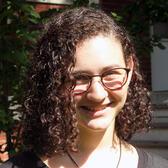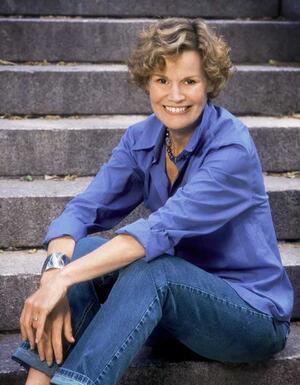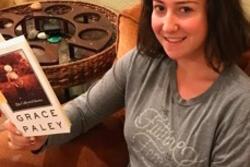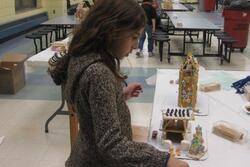The Inspiring, The Messy, and The Author of Both
Bildungsroman: the German word for a coming-of-age novel. A prime example of this? Judy Blume's Are You There, G-d? It's Me, Margaret. Beloved by angsty teens and middle-aged women’s book clubs alike, Judy Blume seems to have completely mastered the art of coming of age in fiction.
Growing up with an irrational fear of dogs, I found a sympathetic fellow in cynophobic Sheila, of Blume’s Otherwise Known As Sheila the Great. I know many classmates of all genders whose love of reading began with the Fudge saga, and, of course, an entire mother-daughter book club's worth of girls who learned the emotional process of menstruation from Margaret and her friends.
One thing that struck me about Judy Blume is that, despite being known worldwide for her stories about growing up, Blume herself didn't start writing until she had children of her own. In a society in which teenagers are told we need to have a solid plan for what we want to do with our lives by freshman year of high school, it's refreshing to know that one of my favorite authorial heroines had no idea where she would end up when she was my age.
As much as she’s influenced my classmates and me on a personal level, Blume has worked to influence the world of literature on a larger scale through her anti-censorship activism. As someone who proudly sports a “Banned Books Week” button all year long, and has written letters of protest in response to attempted book banning, Blume’s work in this field resonates with me in another way: a strong Jewish woman, simultaneously succeeding at being a mother and a novelist, using her writing to push back against those who want to keep her work away from its audience. Her work is making a difference, without sacrificing any more personal aspects of her life–two aspects of my life that I often struggle to balance.
Although Blume has been quoted as saying that organized religion had little effect on her own spirituality, many of the values that I have come to associate with Judaism are reflected strongly in her work. First and foremost, Blume’s belief, also commonly held by Jews as the so-called People of the Book, in the power of the written word, and in the need for books to be part of a young person's education. Second, her sense of obligation towards activism–the idea that if you see something wrong it’s your job to change it, like the concept of tikkun olam–which has played out mainly in her anti-censorship work. Returning to Margaret as the most obvious example, Blume also touches on what I believe to be the very core of Judaism: struggling with G-d, and with one's own beliefs and spirituality.
What I find to be the most profound connection to Judaism, and coincidentally (or not) the most moving aspect of Blume's writing as a whole, is the portrayal of incredibly flawed human beings as beautiful. Judaism teaches that humans–male, female, and otherwise–are created in the image of G-d. However, the first story in the bible about humans is about them making mistakes. In many of Blume's books, an awkward, mistake-making young person learns to live with, learn from, and eventually even love their mistakes and awkwardness. Sometimes, this is about accepting consequences. Sometimes it's about apologizing. But every time, self-acceptance is part of the story Blume tells.
Inevitably, a coming-of-age story is a story of finding self-worth. As someone who has either very recently come of age or, perhaps, is still going through the process, I can confirm this. It's what we love about Blume's protagonists: they screw up, constantly. But somehow, out of the messes they create, they build something beautiful–themselves. That's what growing up is, I think. Learning how to build your world and yourself out of the remains of previous failed attempts, and turning those failures into building blocks.
That, of course, is my own extremely abstract idea of how to grow up. The reality of it is much messier, and very, very real. These are the things that get Judy Blume's books banned from school libraries. She's not afraid to talk about sex, or religion, or body image, or menstruation. She's a real woman, her characters are real people, and she teaches readers, like me, real lessons.
This article is also published on Fresh Ink for Teens.
This piece was written as part of JWA’s Rising Voices Fellowship.








This is awesome, Tamar!